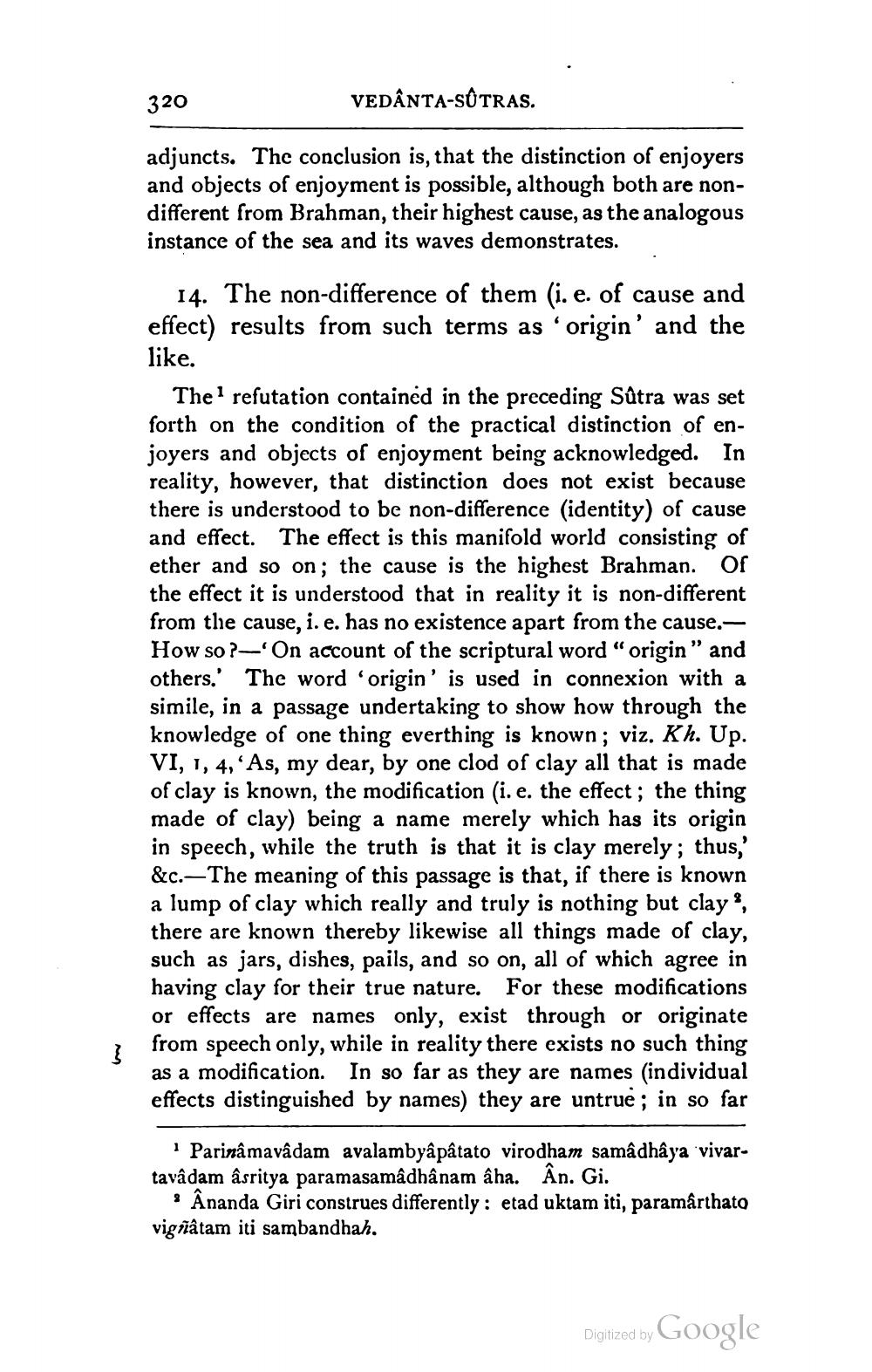________________
320
VEDÂNTA-SÛTRAS.
adjuncts. The conclusion is, that the distinction of enjoyers and objects of enjoyment is possible, although both are nondifferent from Brahman, their highest cause, as the analogous instance of the sea and its waves demonstrates.
14. The non-difference of them (i. e. of cause and effect) results from such terms as 'origin' and the
like.
The refutation contained in the preceding Sûtra was set forth on the condition of the practical distinction of enjoyers and objects of enjoyment being acknowledged. In reality, however, that distinction does not exist because there is understood to be non-difference (identity) of cause and effect. The effect is this manifold world consisting of ether and so on; the cause is the highest Brahman. Of the effect it is understood that in reality it is non-different from the cause, i.e. has no existence apart from the cause.How so ?—'On account of the scriptural word "origin" and others. The word 'origin' is used in connexion with a simile, in a passage undertaking to show how through the knowledge of one thing everthing is known; viz. Kh. Up. VI, 1, 4, 'As, my dear, by one clod of clay all that is made of clay is known, the modification (i.e. the effect; the thing made of clay) being a name merely which has its origin in speech, while the truth is that it is clay merely; thus, &c.—The meaning of this passage is that, if there is known a lump of clay which really and truly is nothing but clays, there are known thereby likewise all things made of clay, such as jars, dishes, pails, and so on, all of which agree in having clay for their true nature. For these modifications or effects are names only, exist through or originate from speech only, while in reality there exists no such thing as a modification. In so far as they are names (individual effects distinguished by names) they are untrue ; in so far
7
i Parinâmavâdam avalambyâpâtato virodham samadhâya vivartavâdam âsritya paramasamadhânam âha. An. Gi.
: Ânanda Giri construes differently: etad uktam iti, paramârthato vigñatam iti sambandhah.
Digized by Google




